The Guide to Magnetic Materials
Whether you’re a student, a professional, or simply curious about the topic, this guide will provide you with a thorough understanding of the world of magnetic metals. So, let’s dive in and discover the fascinating world of magnets and the metals that make them possible.
What is Magnetism?
In simple terms, magnetism is the force that you can feel from magnets when they attract or repel each other. This seemingly magical force baffled scientists for centuries until it was discovered that magnetism is caused by the motion of electrical charges of electrons. Everything around us, except energy, is made from atoms and each atom has electrons and particles that carry electrical charges. These are like spinning tops and their movement generates electrical currents that cause each electron to act and behave like a tiny magnet. The accumulation of millions of these “tiny magnets” amplifies the force which is why magnets attract and repel from one another.
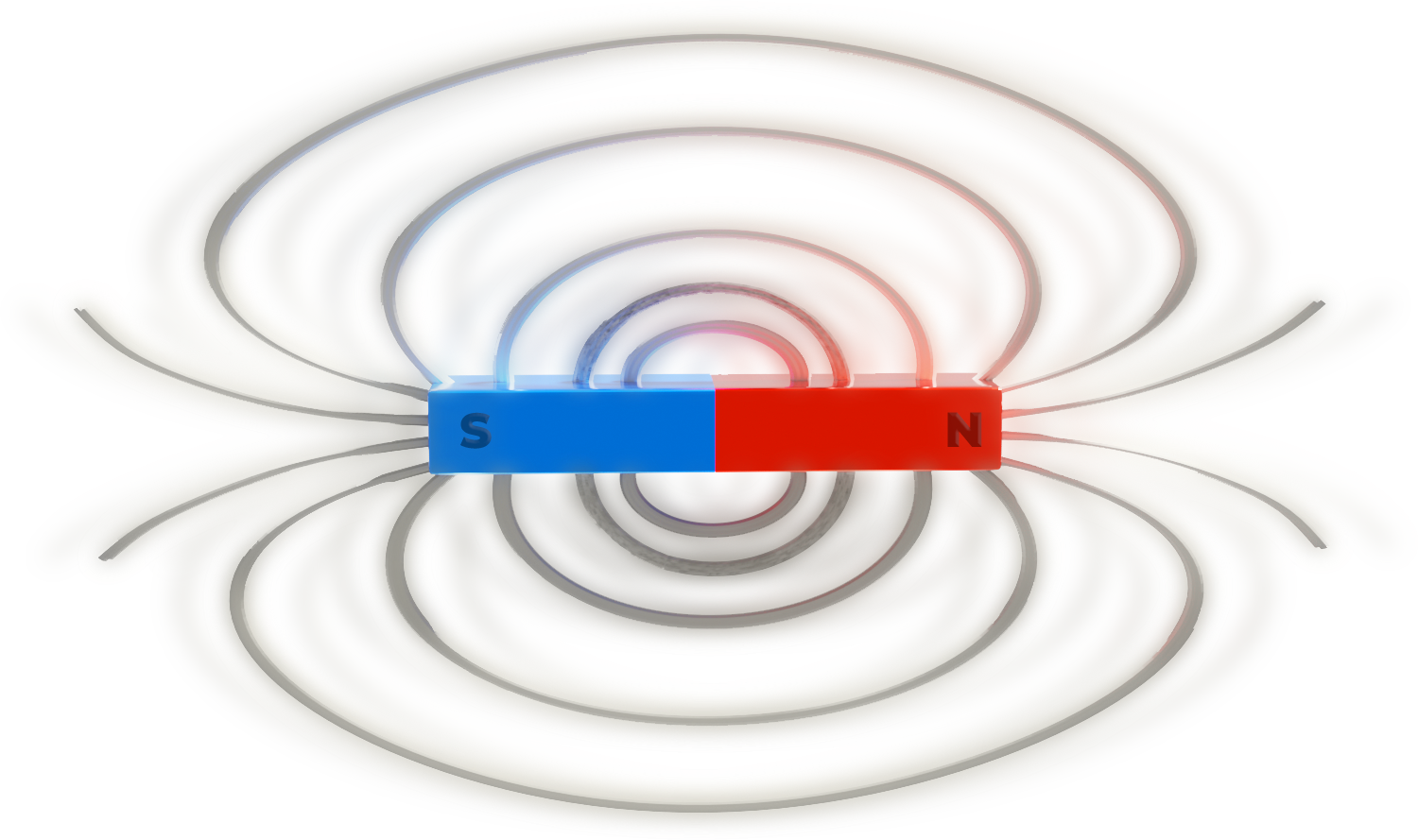
Buy Custom Magnets
Magnet Store is a leading supplier of custom magnetic solutions. If you have any magnet requirements, contact us at custom@magnet-store.co.uk or contact us using the contact form at the bottom of this page.
Is Aluminium Magnetic?
Aluminium is a commonly used metal in various industries and applications, from construction to transportation. One question that is frequently asked is whether or not aluminium is magnetic.
Aluminium is not a magnetic metal, like most non-ferrous metals, aluminium has no unpaired electrons, which are responsible for magnetic properties. This means that aluminium has no magnetic properties and will not be attracted to a magnet. However, it can be alloyed with other magnetic metals or temporarily magnetised by an external magnetic field.
Is Brass Magnetic?
Brass is commonly used in various applications, from musical instruments to home decor. But is Brass magnetic?
Brass is an alloy made up primarily of copper and zinc. Magnetism is a property determined by the alignment of the atoms in a material. In the case of brass, the atoms are arranged in a way that does not allow for the alignment necessary to create a magnetic field. Therefore, brass is not magnetic. This property is consistent across all forms of brass, whether cast, machined, or extruded.
This non-magnetic characteristic of brass is an important property for many applications where magnetic fields can cause interference or damage to equipment. For example, brass is commonly used for switches and connectors in electrical systems because it does not interfere with the flow of electricity. Also, brass is used in the construction of musical instruments, such as horns and trumpets, because its non-magnetic properties do not affect the instrument’s sound quality.
Is Bronze Magnetic?
Bronze is an alloy made up of a combination of copper and tin and sometimes other metals such as zinc or aluminium.
In general, bronze is not considered to be a magnetic material. This is because both copper and tin, the primary components of bronze, are non-magnetic elements. Copper atoms do not have any unpaired electrons, and tin atoms do not have any unpaired electrons. These are both responsible for creating a magnetic moment and making a material magnetic. Therefore, bronze alloyed with only copper and tin is non-magnetic. Additionally, bronze alloys are considered to be diamagnetic, which means that a magnetic field repels them.
Is Cobalt Magnetic?
Cobalt, a chemical element with the symbol Co, is a transition metal known for its unique properties. The question of whether cobalt is magnetic or not is a common one, and the answer is that yes, cobalt is magnetic.
All matter is comprised of atoms, and the behavior of these atoms’ determine a material’s overall properties. In the case of cobalt, its atoms have an intrinsic magnetic property, which means that they align themselves in response to an external magnetic field. This is due to the presence of unpaired electrons in the cobalt atoms. These unpaired electrons create a magnetic moment and make cobalt a ferromagnetic material, which means that it can be magnetised to a large extent.
Cobalt is also known for its high magnetic susceptibility, which means it is highly responsive to an external magnetic field. This property makes it an ideal material for various industrial and technological applications, such as in producing powerful permanent magnets and in manufacturing electronic devices.
Cobalt magnets are particularly useful in applications where high energy density is required, such as in electric motors, generators and MRI machines. However, they are also used in many other applications, such as aerospace, automotive, and medical equipment.
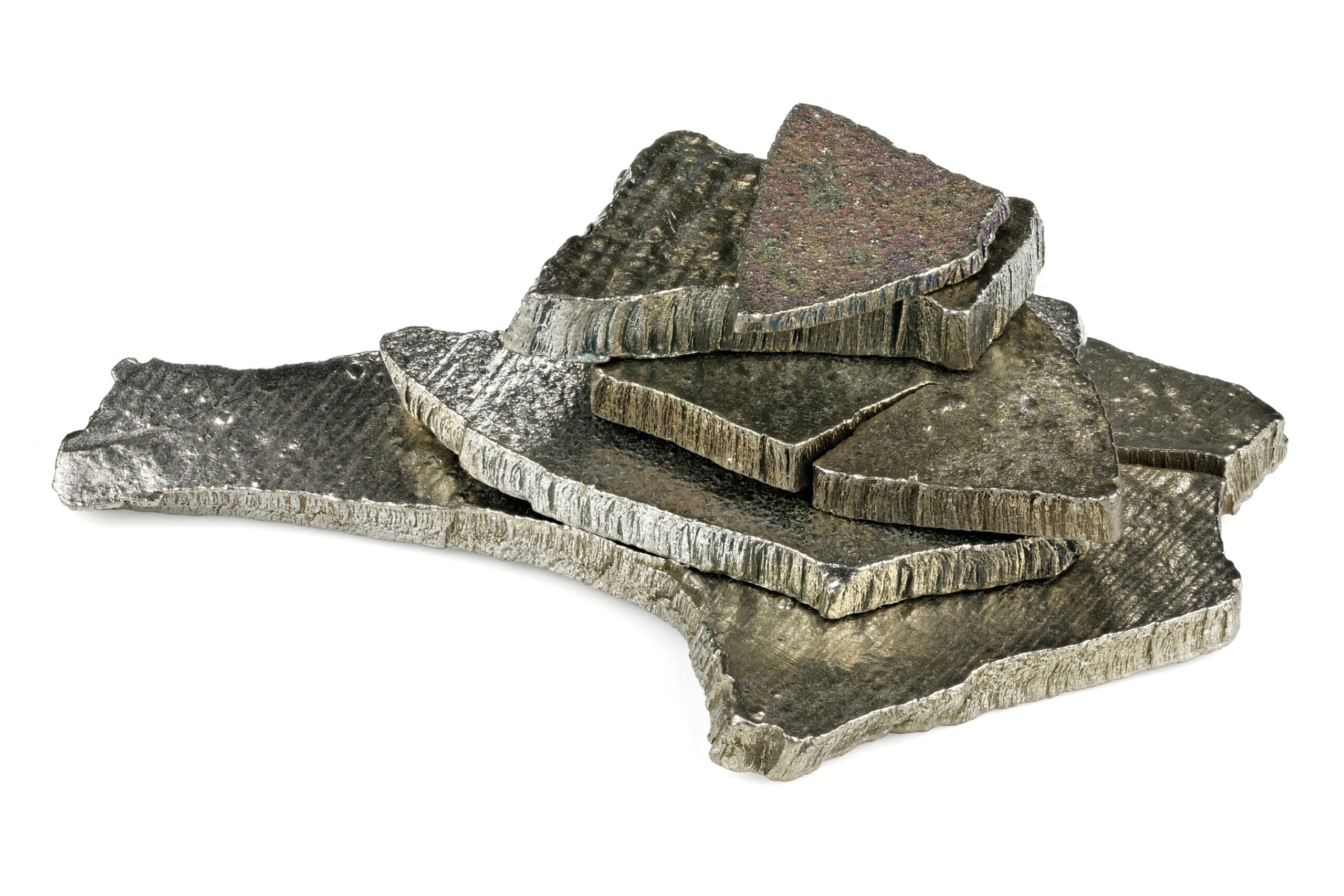
Is Copper Magnetic?
Copper is a widely used metal known for its excellent electrical and thermal conductivity, corrosion resistance and flexibility. However, many people wonder… is copper is magnetic?
Copper is a non-ferrous metal meaning it is not magnetic, it has no unpaired electrons, which are responsible for creating magnetic properties. This means that copper has no magnetic properties. However, it can be alloyed with other magnetic metals or magnetised temporarily by an external magnetic field.
Is Gold Magnetic?
Gold is a chemical element with the symbol Au and atomic number 79. It is a valuable metal that has been used for jewellery, currency, and other decorative and practical purposes for thousands of years. Gold is also used in manufacturing electronic devices and medical equipment because of its high conductivity and resistance to corrosion. You may be wondering, is gold magnetic?
Gold is a non-magnetic material, which means it does not produce a magnetic field and is not affected by an external magnetic field. This is as the electrons in the gold atoms are not aligned in the same direction, which means that the magnetic fields they produce cancel each other out. While gold can be alloyed with other metals, which may change its magnetic properties, typically, gold is non-magnetic.
Is Iron Magnetic?
Iron is a chemical element with the symbol Fe and atomic number 26. Iron has been used for thousands of years for various purposes such as construction and transportation.
Iron is a ferromagnetic material, which means it can be magnetised by an external magnetic field, and it can also produce its own magnetic field. Ferromagnetism is a type of magnetism exhibited by certain materials, including iron, nickel, and cobalt. In these materials, the electrons are aligned so that their magnetic fields reinforce each other, resulting in a strong magnetic field. This property is due to the iron atoms’ unpaired electrons, which all point in the same direction.
It is important to note that not all forms of iron are magnetic.
Iron has different forms, including cast iron and wrought iron;
- In its pure form, iron is a ferromagnetic material, which means an external magnetic field can magnetise it and it also produces its magnetic field
- Cast iron is mostly composed of iron, silicon, and other impurities and is a brittle material; it is magnetic.
- Wrought iron is mostly composed of iron, slag, and other impurities and is ductile. It is also magnetic.
For example, iron is used to construct electric motors, generators, and speakers. It is also used to manufacture various tools, such as nails, screws, and other hardware.
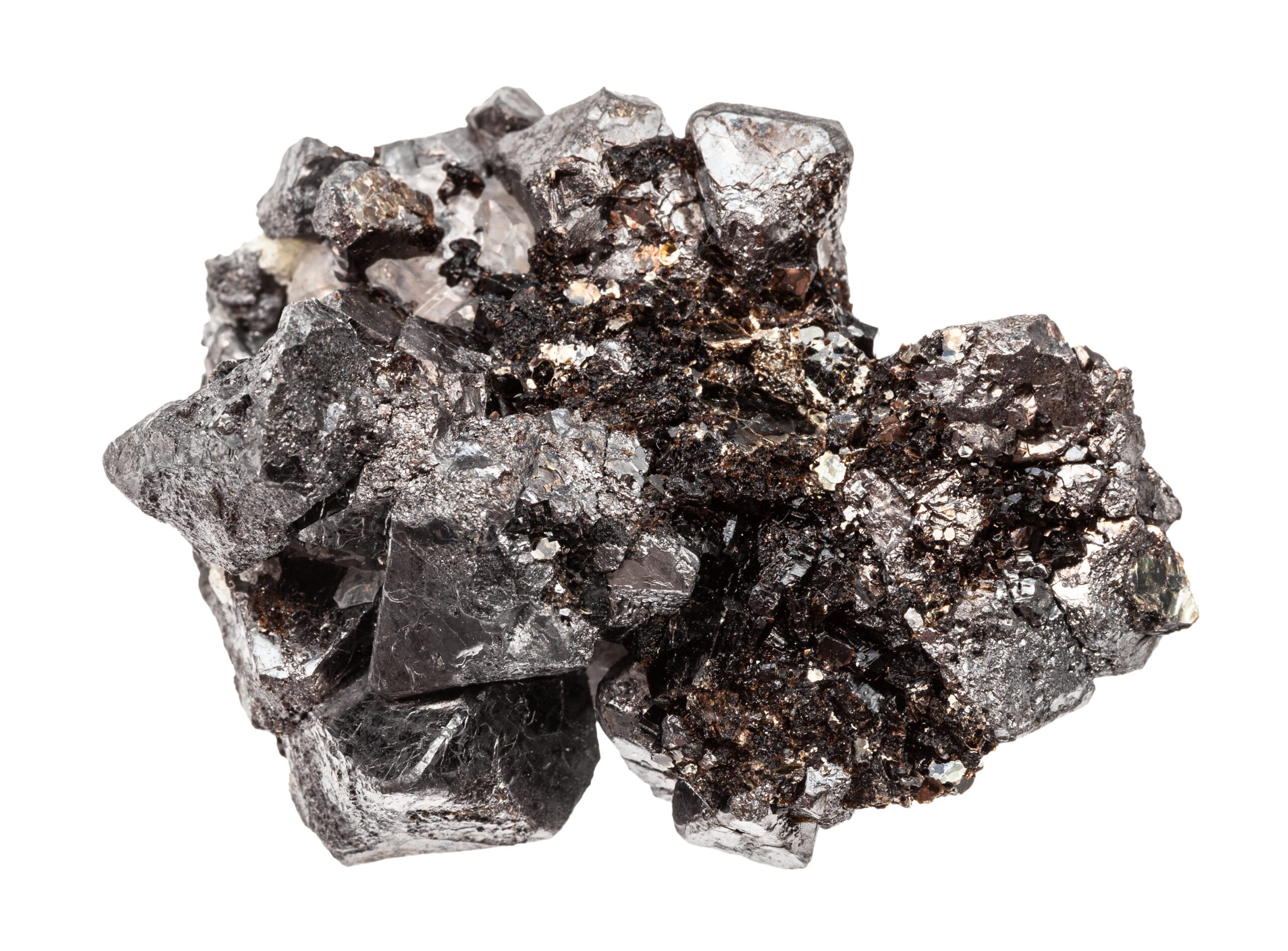
Is Lead Magnetic?
Lead, is a chemical element identified by the symbol Pb, and is a heavy metal used in many applications, such as construction and industrial processes. But is Lead a magnetic material?
Magnetism is a property determined by the alignment of the electrons in a material. In the case of lead, the electrons are arranged in a way that does not allow for the alignment necessary to create a magnetic field. Therefore, lead is not magnetic.
Is Magnesium Magnetic?
Magnesium, a chemical element with the symbol Mg, is a metallic element that is widely used in various industrial and consumer products.
Magnesium atoms do not have any intrinsic magnetic properties, meaning they do not align themselves in response to an external magnetic field. This is because magnesium atoms do not have any unpaired electrons, responsible for creating a magnetic moment and making a material magnetic. Additionally, magnesium is considered to be a diamagnetic element, which means that a magnetic field repels it. However, magnesium’s magnetic properties can change when mixed with other materials or in different forms. Therefore, magnesium is mainly used in various applications that do not involve magnetism.
Is Mercury Magnetic?
Mercury, also known as quicksilver, is a chemical element with the symbol Hg. It is a heavy, silvery-white metal that is liquid at room temperature.
Mercury atoms do not have any intrinsic magnetic properties, meaning they do not align themselves in response to an external magnetic field. This is because mercury atoms do not have any unpaired electrons, which are responsible for creating a magnetic moment and making a material magnetic. Additionally, mercury is considered to be a diamagnetic element, which means that it is repelled by a magnetic field. Mercury has been used in various industrial and scientific applications, but it has been phased out due to its toxic nature and tendency to accumulate in the environment.
Is Nickel Magnetic?
Nickel is a chemical element with the symbol Ni and atomic number 28. It’s a silvery-white, shining metal that is commonly used in a wide range of industrial and consumer applications. One of the most common questions about nickel is whether or not it is magnetic. The answer to this question is that it depends on the specific type of nickel and the conditions it is under.
Pure nickel (Ni) is not magnetic. This is because the electrons in the nickel atoms are arranged in such a way that the north and south poles of the atoms are not aligned. In simple terms, this means there is no magnetic field.
However, some alloys of nickel, such as nickel-iron alloys, can be magnetic. Again, this is because adding iron atoms to the nickel atoms can cause the electrons to align so that a net magnetic field is created.
Nickel-iron alloys, also known as permalloys, are used in many applications where magnetic properties are important. For example, these alloys are commonly used in electrical equipment such as transformers and electric motors and in magnetic recording media like hard disk drives and audio tapes.
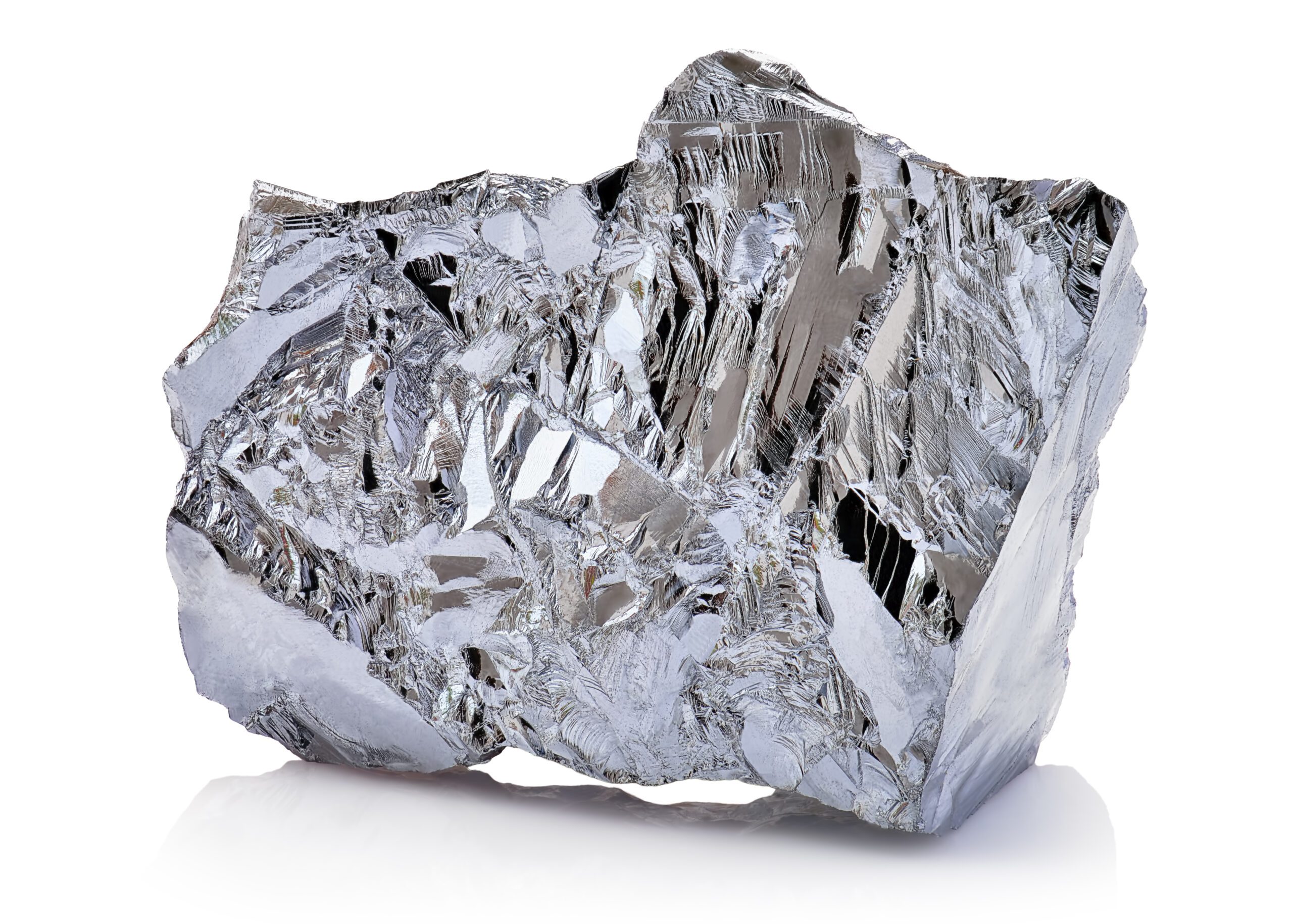
Is Platinum Magnetic?
Platinum, a chemical element with the symbol Pt, is a rare, dense and valuable metal that is widely used in various industrial and consumer products. However, whether platinum is magnetic or not is not straightforward, and the answer depends on the context in which it is being considered.
First, it is important to understand that all matter is made up of atoms, and these atoms’ behaviour determines a material’s overall properties. In the case of platinum, it is considered to be a non-magnetic element. This means platinum atoms do not have any intrinsic magnetic properties and do not align themselves in response to an external magnetic field. This is because platinum atoms do not have any unpaired electrons, which are responsible for creating a magnetic moment and making a material magnetic.
Additionally, platinum is considered a diamagnetic element, meaning a magnetic field repels it. This is in contrast to paramagnetic materials, which are attracted to a magnetic field, and ferromagnetic materials, which can be magnetised to a large extent.
It is important to note that just because platinum is non-magnetic, it does not mean it cannot be used in applications involving magnetism. For example, platinum is often used as a conductor in electronic devices, including those that use magnetic fields.. Additionally, platinum is used as a catalyst in various chemical reactions, including magnetic fields, such as in magnetic resonance imaging (MRI).
Is Silver Magnetic?
Silver, like many other metals, is not magnetic. However, silver is diamagnetic and can repel if placed within a strong magnetic field or can be made magnetic if alloyed with other magnetic materials.
Silver is not magnetic because the silver atoms’ electrons are not aligned in a way that creates a magnetic field. In a magnetic material, the electrons are arranged so that the atoms’ north and south poles are aligned, creating a net magnetic field. However, in a non-magnetic material like silver, the electrons are arranged so that the north and south poles of the atoms are not aligned.
It’s worth noting that silver is a good conductor of electricity, and it’s often used to make electric and electronic devices. Because of its excellent electrical conductivity and relatively low cost, silver is an excellent choice for electronic applications like circuit boards, connectors, and switches.
Is Stainless Steel Magnetic?
Stainless steel is a widely used metal alloy that is known for its durability, corrosion resistance and aesthetic appeal. However, many people wonder if stainless steel is magnetic or not. The answer is that it depends on the specific type of stainless steel.
Stainless steel is an alloy made of mostly iron, with small amounts of other metals such as chromium and nickel. The specific composition and manufacturing process of stainless steel determines its properties, including whether or not it is magnetic.
There are two main types of stainless steel: ferritic and austenitic. Ferritic stainless steel contains a higher percentage of ferrite, which is a magnetic material, and therefore is magnetic. On the other hand, austenitic stainless steel contains a higher percentage of austenite, which is non-magnetic, and therefore is not magnetic.
It is important to note that even non-magnetic stainless steel may exhibit weak magnetism when it is cold-worked. This happens when it is bent, formed or welded, due to the alignment of the crystals.
Is Steel Magnetic?
Steel is an alloy of iron and other elements, such as carbon and metals. It is a widely used material in various industries due to its strength, durability, and versatility. One of the properties of steel commonly asked is whether it is magnetic or not. The answer is that it depends on the steel type and the alloy’s composition.
There are different types of steel, and each has different properties. The magnetic properties of steel are determined by the amount of iron present in the alloy and the presence of other elements that affect the alignment of electrons.
Ferromagnetic steel is a type of steel that contains a high amount of iron and is therefore magnetic.The iron atoms in ferromagnetic steel are aligned in the same direction, which creates a strong magnetic field. This type of steel is commonly used to construct buildings, bridges, cars, and appliances.
On the other hand, steel alloys are non-ferromagnetic and not magnetic. Nonmagnetic steel is made by combining elements such as nickel and chromium. The presence of these elements affects the alignment of electrons and prevents the formation of a magnetic field. Non-magnetic steel is commonly used in the aerospace industry, medical equipment, and a variety of electronic devices.
Is Tin Magnetic?
Tin, is a chemical element with the symbol Sn, and is widely used in various industrial and consumer products. The question of whether tin is magnetic or not is a common one, and the answer is that tin is not magnetic.
All matter is made up of atoms, and these atoms’ behaviour determines a material’s overall properties. Tin atoms do not have any unpaired electrons, which are responsible for creating a magnetic moment and making a material magnetic. Additionally, tin is considered a diamagnetic element, meaning a magnetic field repels it.
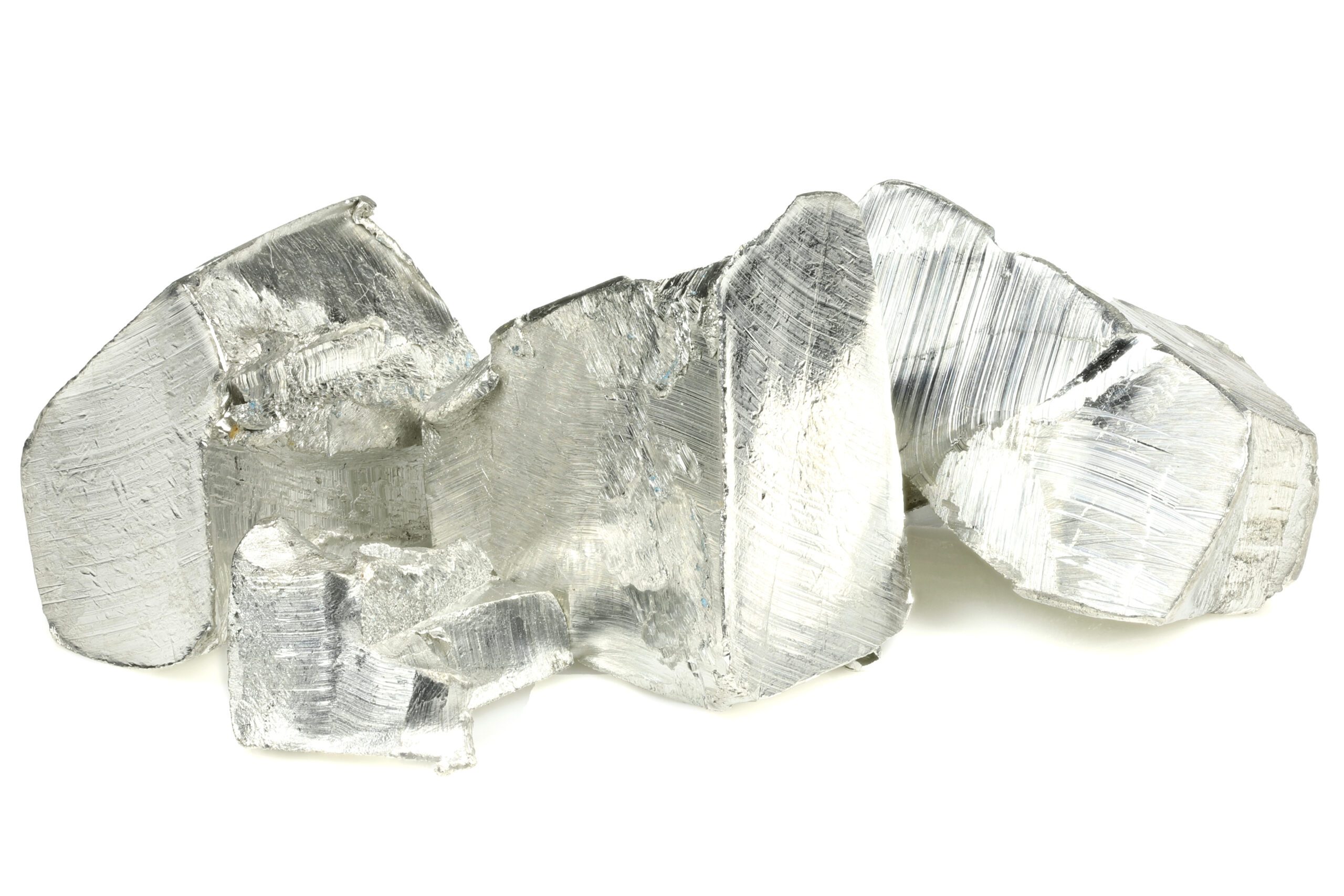
Is Titanium Magnetic?
Titanium is a chemical element with the symbol Ti and atomic number 22. It is a strong, lightweight, and corrosion-resistant metal commonly used in various industrial and medical applications. One of the properties that make titanium so useful is its corrosion resistance.
Titanium is paramagnetic meaning it has a weak attracting magnetic field. Titanium alloys with magnetic properties are used in various applications where a combination of strength, corrosion resistance, and magnetic properties are required. Some examples include aerospace and defence applications, medical equipment, and the oil and gas industry.
Is Zinc Magnetic?
Zinc, or Zn, is a common metal used in many products. One question that may come up is whether or not it is magnetic.
The short answer is no, zinc is not magnetic. This is because the atoms in zinc do not have any intrinsic magnetic properties, meaning they do not align themselves in response to an external magnetic field. However, it’s worth noting that if zinc is mixed with other magnetic materials, it can exhibit magnetic behaviour. So, while zinc itself is not magnetic, it’s important to remember that its properties can change when mixed with other materials.

